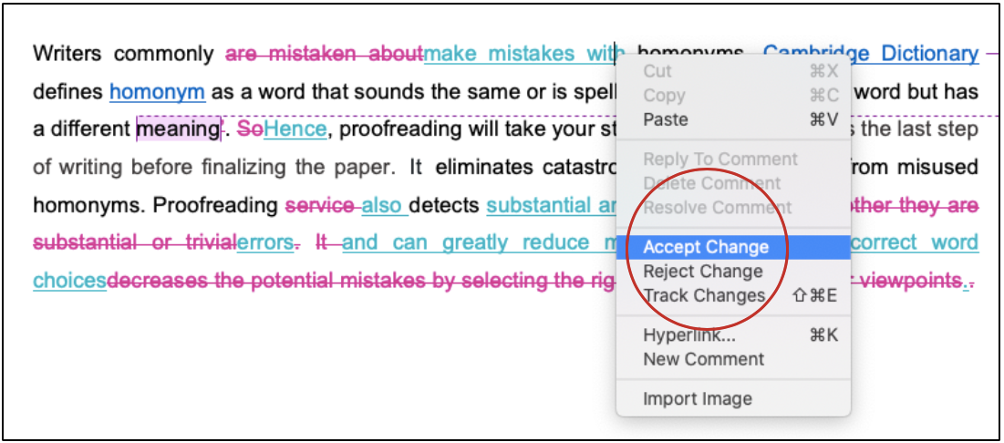You discuss and explore your results' prominence, meaning, and relevance in the discussion chapter. Therefore, you should concentrate on what you have found and explain and assess how your findings relate to your literature review and research questions.

You discuss and explore your results' prominence, meaning, and relevance in the discussion chapter. Therefore, you should concentrate on what you have found and explain and assess how your findings relate to your literature review and research questions. On top of that, it should support and form the foundation of your conclusion section. One may employ many ways to structure the discussion section. However, the following tips may help.
1) Focus on interpretations of your results and explicitly state what they mean.
2) State implications and elaborate on why they are critical.
3) Report limitations as they tell the readers what the results cannot suggest.
4) Suggest recommendations because they can inspire the researchers in your study area to pursue novel research.
An overlap may exist between the discussion and conclusion sections, and these two sections may form a single chapter in some thesis or dissertations. If you are unsure about the ideal study structure, consult your supervisor or investigate sample thesis or dissertations using relevant databases.
It would be best to begin this chapter by repeating your research problem and summarizing your crucial findings. One should note that repeating all the already reported data is inappropriate. Its usual length is not more than a paragraph. Instead, it would help if you explicitly aimed to state the overall result and readdress your primary research question. Verbs such as depict, demonstrate, suggest, state, and disclose help immensely to express your ideas.
You should state the obvious. Although what the results mean is crystal clear to you, the reader cannot comprehend the complete picture unless you utter what they may imply and what their significance is. Equally critical is to address your research question again. How you structure your interpretations will depend on the type of research, but the following usual approaches may help interpret the data:
1) Specify your data's correlations, models, and relationships so the reader can readily follow.
2) Argue if the discovered results fit your expectations or favor your research hypotheses.
3) Use previous studies and theories to put your findings in perspective.
4) Explain the unexpected results in such a way that the reader can assess their relevance.
5) Consider alternative explanations as they can reinforce your findings.
Pursuing the approach used in the results section, you can arrange your discussion by stating critical themes, hypotheses, and research questions. Underlining the most vital and unexpected results may substantially help. Please remember that you should support or refute the extant hypotheses or theories. Using expressions such as “aligning with previous research,” “contradicting the extant literature,” “in contrast to previous studies,” or “the results might suggest that” is exceedingly crucial.
Editing and proofreading your discussion section is beyond critical. A professional editing and proofreading service with trained and experienced experts holding PhD degrees in their fields will edit your thesis or dissertation discussion with utmost care. The discussion section will be more legible and practical thanks to their vast experience.
Presenting your interpretations is vital but not adequate. Please ensure that your results support the scholarly work you have already cited in the literature review. The discussion section should cover how your findings fit or not with actual knowledge, whether they offer new insight, and what theoretical or practical ramifications they may have. Addressing the following questions is a great asset.
1) Do your findings support or refute the extant research? What new contributions do they add to the existing knowledge?
2) Are there any substantial differences between your results and those of other studies? Suppose they are. What would be the reason?
3) Do your findings uphold or refute the extant theories?
4) What would you say about the practical implications of your results?
Therefore, you aim to depict to the reader precisely what your research has contributed and why it is relevant. This section should contain sentences such as “The data explicitly contribute to the extant knowledge,” “The results do not align with the x theory,” “The experiment offers a novel insight into the relationship between x and y,’ and “although previous results have centered on y, these results support x.”
Every research has limitations, and addressing these depicts your credibility. They present an accurate picture of what one can and cannot conclude from your study.
Your research design, methodologies, or unexpected obstacles usually relate to limitations. Please ensure you report limitations directly associated with your research and assess their possible impact on the research objectives. They include issues about your sample size, problems in data collection, and confounding variables. This section contains statements such as “our data’s reliability is limited by the small sample size,” “these techniques are beyond the scope of this research,” and “limited data do not allow us to generalize the case to the entire country.”
This section is about recommendations for the practical implementation of your study or further research. Sometimes, the conclusion section may cover the recommendations.
Stating that more studies should be done is not precise; one should include solid ideas for building future work. You may find expressions such as “further research should address these issues” and “future studies should concentrate more on global warming” in this part.
Best Edit & Proof expert editors and proofreaders focus on offering papers with proper tone, content, and style of academic writing, and also provide an upscale editing and proofreading service for you. If you consider our pieces of advice, you will witness a notable increase in the chance for your research manuscript to be accepted by the publishers. We work together as an academic writing style guide by bestowing subject-area editing and proofreading around several categorized writing styles. With the group of our expert editors, you will always find us all set to help you identify the tone and style that your manuscript needs to get a nod from the publishers.

You can also avail of our assistance if you are looking for editors who can format your manuscript, or just check on the particular styles for the formatting task as per the guidelines provided to you, e.g., APA, MLA, or Chicago/Turabian styles. Best Edit & Proof editors and proofreaders provide all sorts of academic writing help, including editing and proofreading services, using our user-friendly website, and a streamlined ordering process.
Visit our order page if you want our subject-area editors or language experts to work on your manuscript to improve its tone and style and give it a perfect academic tone and style through proper editing and proofreading. The process of submitting a paper is very easy and quick. Click here to find out how it works.
Our pricing is based on the type of service you avail of here, be it editing or proofreading. We charge on the basis of the word count of your manuscript that you submit for editing and proofreading and the turnaround time it takes to get it done. If you want to get an instant price quote for your project, copy and paste your document or enter your word count into our pricing calculator.
Contact us to get support with academic editing and proofreading. We have a 24/7 active live chat mode to offer you direct support along with qualified editors to refine and furbish your manuscript.
Follow us on Twitter, LinkedIn, Facebook, Instagram, and Medium.
For more posts, click here.
This article explains how to write discussion for a dissertation and thesis. To give you an opportunity to practice proofreading, we have left a few spelling, punctuation, or grammatical errors in the text. See if you can spot them! If you spot the errors correctly, you will be entitled to a 10% discount.
How to Determine Variability in a Dataset
14.10.2023
Population vs Sample | Sampling Methods for a Dissertation
14.01.2023
7 Issues to Avoid That may Dent the Quality of Thesis Writing
18.12.2022
How to Ensure the Quality of Academic Writing in a Thesis and Dissertation?
04.12.2022
How to Define Population and Sample in a Dissertation?
03.12.2022
How can You Establish Experimental Design in Your Dissertation?
12.11.2022
How Can You Decide on Tense Usage in Your Dissertation?
04.11.2022
How Can You Write an Abstract for Your Dissertation?
30.10.2022
How to Build Research Methods for Your Dissertation
14.10.2022
How to Build a Strong Hypothesis for Your Dissertation
13.10.2022

Research methodology is about the data collection and analysis methods employed in your research. Thus, this section addresses what you performed and how you did it, letting readers assess the reliability and validity of your study and is a critical part of your thesis or dissertation.
Continue Reading
A hypothesis is a testable statement on which scientific research focus. Suppose you wish to investigate a relationship between two or more variables. In that case, you must construct hypotheses before you begin your experiment or data collection.
Continue Reading
The central tendency, mean, median, and mode depict where most data points concentrate, while variability illustrates how far they are. It is exceedingly crucial because the amount of variability demonstrates the generalization one can make from the sample to the population. Low variability is desirable because it implies that predicting information about the population using sample data is well-justified. Contrarily, high variability illustrates decreased consistency, making data predictions harder.
Continue Reading